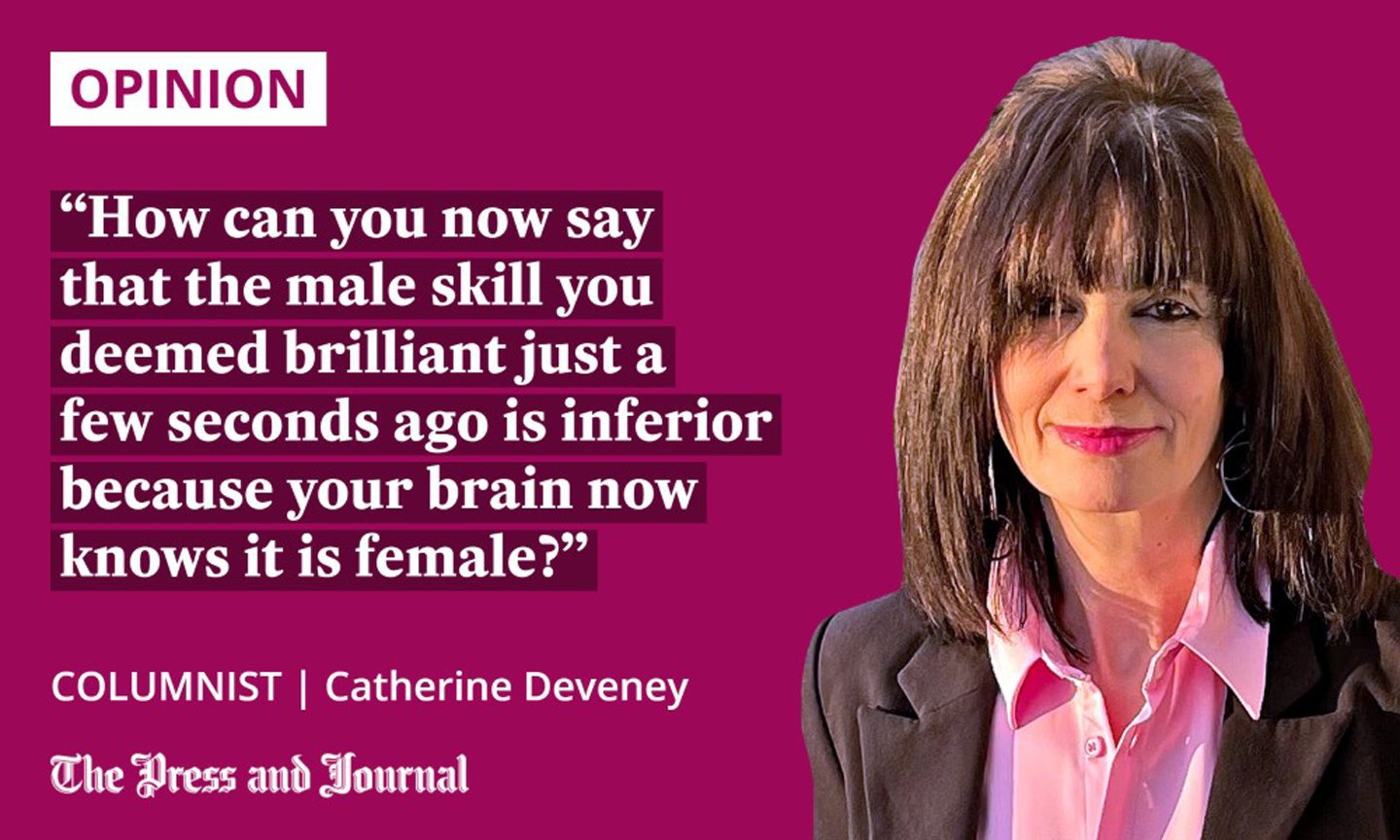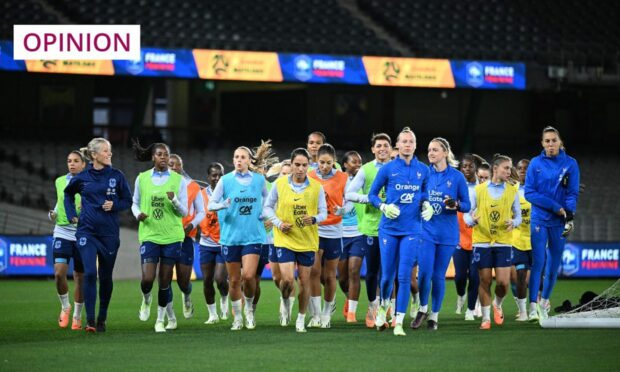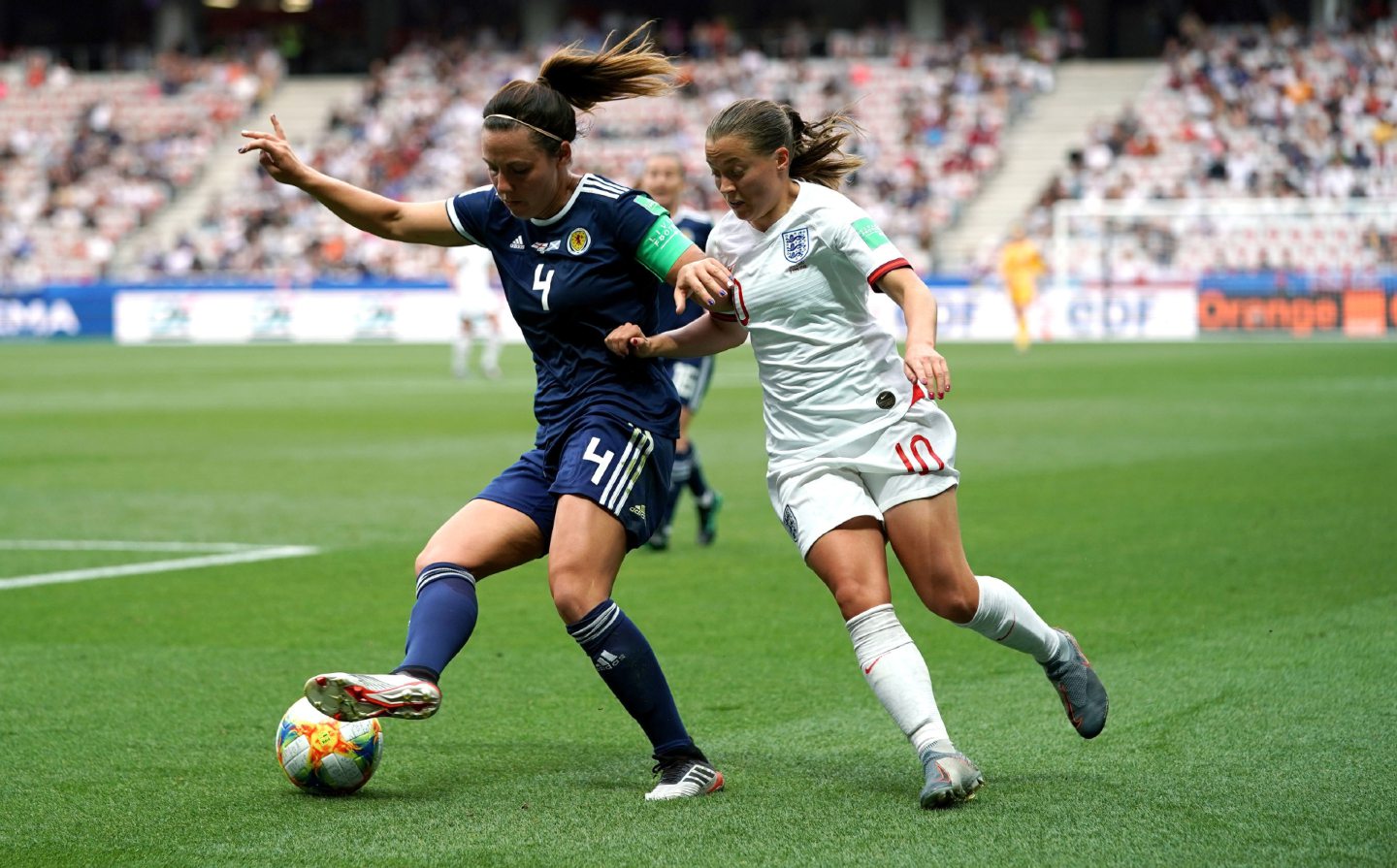The wonderful thing about the French Football Federation’s advert for the Women’s World Cup, which begins on July 21, is that it reaches – to paraphrase Heineken beer promotions – the parts other adverts do not reach.
The footage of “Les Bleus” star players, compiled in partnership with the communications company Orange, creates an exciting showreel, appearing to celebrate everything that is masculine in the beautiful game: speed, strength, dexterity. But, wait.
Men’s football USPs are revealed to be not so unique after all: the fancy flicks and tricky tricks were actually performed by France’s female players – Les Bleues, not Les Bleus – and altered using video technology. This advert doesn’t just celebrate; it confronts.
“Only the Bleus,” the voiceover says, “can give us these emotions.” At that, the voice pauses. “But that’s not them you’ve just seen.” As the image morphs, the viewer sees it wasn’t male stars, like Antoine Griezmann, they were watching after all. It was female stars, like Delphine Cascarino.
The visual confrontation is more than a clever challenge to what your eyes see. It penetrates deep inside, to challenge what your heart sees, and what your brain allows you to see.
The first part of the advert promotes national pride and an admiration for the male, physical prowess you are witnessing. That makes it impossible to backtrack when it is revealed you are actually watching women.

How can you now say that the male skill you deemed brilliant just a few seconds ago is inferior because your brain now knows it is female? And, if you recognise that this is, indeed, what your brain is instinctively asking you to do, then the advert is revealing something that is normally locked tightly away: your unconscious bias.
The advert is a tour de force, because the concepts it captures are normally so abstract. It is partly about equality, but largely about respect, which is much more nebulous.
Over the centuries, women’s achievements in so many areas have been judged differently to male ones: in art and literature and science and business. Taking a male-dominated world like football to highlight the different standards applied to female capabilities is really interesting. But it must be viewed more widely than that. This is not just about the respect given to women’s contributions to football. It’s about the respect given to women’s view of the world in general. And also how much they are paid.
No spoilers, but this is the cleverest football advert I've ever seen. pic.twitter.com/9dNmSc5yQM
— Daniel Storey (@danielstorey85) July 15, 2023
Fifa claims to be committed to closing the gender prize-money gap in World Cups. The $150 million women’s prize is only a third of the $440 million received at the Qatar male World Cup.
Last week, the Australian women’s team released a video protesting about the difference, which is really just a reflection of the gender pay gap in wider society; a pay gap that is not only about equality of wages, but equality of prospects, and the ways traditionally female jobs are evaluated in comparison to traditionally male ones. The new advert belies the notion that women’s skills are inferior to men’s – and that extends way beyond football.
Apply the premise to different scenarios
The premise of the advert can be applied to different scenarios. One of England’s Lionesses, Fran Kirby, has teamed up to work with the Campaign Against Living Miserably (Calm) around mental health. Following the release of ONS statistics which show a significant increase in suicide in young women over the last decade, Calm commissioned a YouGov survey.
It found that younger women seeking help for mental health problems were deemed over-emotional and attention-seeking. And 20% of them were asked if they were on their period. Imagine an advert showing a mental health narrative being voiced by a female character, which then morphs into a male character. It would, surely, be as revealing as the football advert.
And what about narratives surrounding sexual assault, voiced by morphing genders? Not just in McDonald’s, which is currently at the heart of yet another misogyny scandal.
In Italy this month, a teenage schoolgirl who was sexually assaulted by a 66-year-old caretaker had her case dismissed by a judge who deemed it wasn’t assault because it “lasted less than 10 seconds”. The caretaker had, apparently, put his hands down her trousers, touching her buttocks and pulling at her underwear.
In 2022, a Durham University survey of male football fans found ‘openly misogynistic attitudes’ among fans who considered coverage of the women’s game to be politically correct nonsense
Protestors – thankfully men as well as women – have posted videos online which illustrate how long 10 seconds last when something unpleasant is happening. “Love,” the caretaker allegedly said to the teenager, “you know it was only a joke.” Sweetie, it wasn’t funny.
In 2022, a Durham University survey of male football fans found “openly misogynistic attitudes” among fans who considered coverage of the women’s game to be politically correct nonsense. Football, then, may seem the unlikeliest of starting places when looking for a fair reassessment of gender contributions to the world. But there is something really uplifting about one of the true bastions of sexism pushing the boundaries. Beautiful game, indeed.
Catherine Deveney is an award-winning investigative journalist, novelist and television presenter

